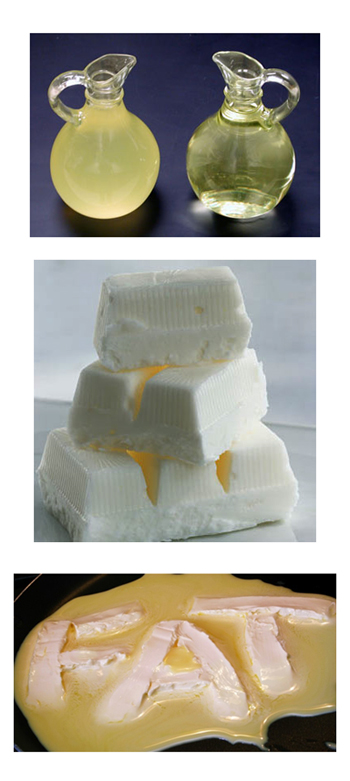We have all heard that hydrogenated oil is not good for our diets, but if your like us you “Have” to know WHY? We did some digging around and came up with these facts about hydrogenated oils, pretty interesting stuff, check it out….
Oils have been hydrogenated for many decades, to prolong their shelf life and make the oils more stable. Hydrogenated oil is oil in which the essential fatty acids have been converted to a different form chemically, which has several effects. Hydrogenated oil is far more shelf stable, and will not go rancid as quickly as untreated oil. It also has a higher melting point, and is often used in frying and pastries for this reason. When hydrogenated, the chemical structure of the oil is changed, which scientists in the 1990s began to realize could result in negative health effects. Hydrogenated oil is made by forcing hydrogen gas into oil at high pressure. Both animal and vegetable fats can be and are hydrogenated. In general, the more solid the oil is, the more hydrogenated it is. Two common examples of hydrogenated oil are Crisco and margarine. In the 1990s, it was realized that these products might have deleterious health effects, a tragic irony since they were originally produced and promoted as being healthier than conventional oils. The unstable fatty acids in oils are unsaturated fats, which have been determined to be healthier for consumers, acting to reduce cholesterol in some cases. When hydrogenated oil is made, these healthy fats are converted into a new type of fatty acid, known as a trans fat. Trans fats are not at all good for one’s health. In some highly hydrogenated oils like margarine, trans fats can make up almost half of the total fat content. Trans fatty acids work to increase LDL, or “bad” cholesterol, and they also decrease HDL cholesterol, which is “good” cholesterol. This means that the fats in hydrogenated oil are far more damaging than even saturated fats, which medical professionals have already determined to be harmful. There is also evidence to suggest that trans fatty acids may bioaccumulate in the body, because the digestive system has difficulty figuring out what to do with them. As a result, a diet high in trans fats will result in weight gain.
Consumption of hydrogenated oil has been linked with diabetes, coronary disease, and obesity in a wide number of scientific studies. In the 1990s, many activists began to lobby for clear food labeling, indicating when products contained trans fats. Other activists went further, attempting to ban trans fats because of their detriment to human health. All medical professionals agree that people should limit their consumption of hydrogenated oil to avoid exposure to trans fats, and should eat foods with healthy fats such as nuts, avocados, and olive oil.

